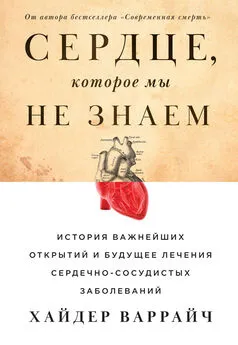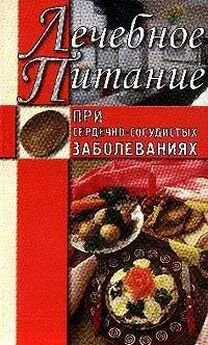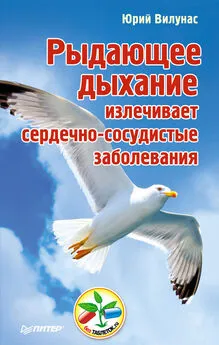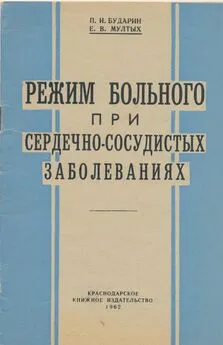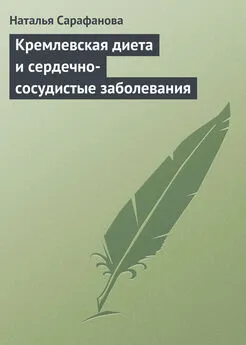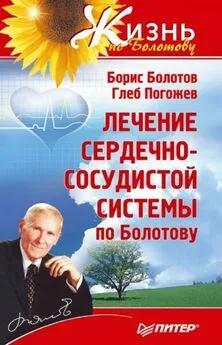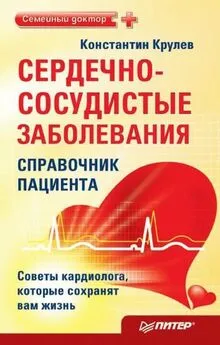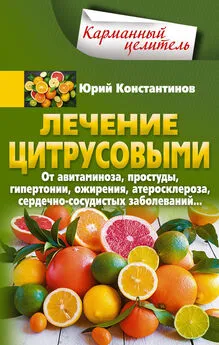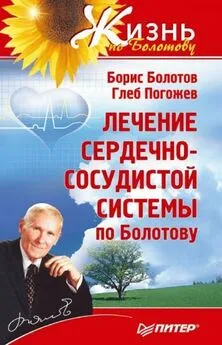Хайдер Варрайч - Сердце, которое мы не знаем. История важнейших открытий и будущее лечения сердечно-сосудистых заболеваний
- Название:Сердце, которое мы не знаем. История важнейших открытий и будущее лечения сердечно-сосудистых заболеваний
- Автор:
- Жанр:
- Издательство:Литагент Альпина
- Год:2021
- Город:Москва
- ISBN:9785961473445
- Рейтинг:
- Избранное:Добавить в избранное
-
Отзывы:
-
Ваша оценка:
Хайдер Варрайч - Сердце, которое мы не знаем. История важнейших открытий и будущее лечения сердечно-сосудистых заболеваний краткое содержание
Вы узнаете о строении и функциях сердца и коронарных сосудов, о самых распространенных болезнях, их диагностике, лекарствах, а также о плюсах и минусах популярных методов лечения – катетеризации, кардиостимуляции и электроимпульсной терапии. Книга полна историй из практики автора и его коллег и отсылок к истории медицинской науки.
Хайдер Варрайч объясняет, почему женщины страдают теми же сердечными заболеваниями, что и мужчины, но тип заболевания у них совершенно иной, что общего у коронарных и онкологических заболеваний, как эволюция могла привести нас к настоящей эпидемии ишемической болезни, рассуждает о нынешнем состоянии мировой клинической кардиологии и перспективах ее развития в эпоху внедрения искусственного интеллекта.
Сердце, которое мы не знаем. История важнейших открытий и будущее лечения сердечно-сосудистых заболеваний - читать онлайн бесплатно ознакомительный отрывок
Интервал:
Закладка:
74
Rakotz M. K., Townsend R. R., Yang J., et al. Medical Students and Measuring Blood Pressure: Results from the American Medical Association Blood Pressure Check Challenge. Journal of Clinical Hypertension (Greenwich), 2017;19:614–9.
75
Frieden T. R. Shattuck Lecture: The Future of Public Health. New England Journal of Medicine. 2015;373:1748–54.
76
Sotos J. G. President Taft’s Blood Pressure. Mayo Clinic Proceedings. 2006;81:1507–8.
77
Menger R. P., Storey C. M., Guthikonda B., Missios S, Nanda A, Cooper JM. Woodrow Wilson’s Hidden Stroke of 1919: The Impact of Patient-Physician Confidentiality on United States Foreign Policy. Neurosurgical Focus. 2015;39: E6.
78
Steinberg D. President Franklin D Roosevelt (1882–1945) and Doctor Frank Howard Lahey’s (1880–1953) Dilemma: The Complexities of Medical Confidentiality with World Leaders. Journal of Medical Biography. 2016;24:50–60.
79
Osler W. An Address on High Blood Pressure: Its Associations, Advantages, and Disadvantages: Delivered at the Glasgow Southern Medical Society. British Medical Journal. 1912;2:1173–7.
80
White P. D. Heart Disease. 2nd ed. New York: MacMillan Co; 1937:326.
81
Hay J. A British Medical Association Lecture on the Significance of a Raised Blood Pressure. British Medical Journal. 1931;2:43–7.
82
Fisher J. W. The Diagnostic Value of the Sphygmomanometer in Examinations for Life Insurance. Journal of the American Medical Association. 1914;63:1752–54.
83
Society of Actuaries. Blood Pressure: Report of the Joint Committee on Mortality of the Association of Life Insurance Medical Directors and the Actuarial Society of America. New York:1925.
84
Dawber, Moore, Mann. Coronary Heart Disease.
85
Kannel W. B., Dawber T. R., Cohen M. E., McNamara P. M. Vascular Disease of the Brain – Epidemiologic Aspects: The Framingham Study. American Journal of Public Health and the Nation’s Health. 1965;55:1355–66.
86
Kannel W. B. Bishop Lecture. Contribution of the Framingham Study to Preventive Cardiology. Journal of the American College of Cardiology. 1990;15:206–11.
87
Kolata G. Lower Blood Pressure Guidelines Could Be “Lifesaving,” Federal Study Says. New York Times. September 11, 2015.
88
Muntner P., Carey R. M., Gidding S., et al. Potential US Population Impact of the 2017 ACC/AHA High Blood Pressure Guideline. Circulation. 2018;137:109–18.
89
Frieden. Shattuck Lecture.
90
Bruenn. Clinical Notes.
91
Morris M. J., Na E. S., Johnson A. K. Salt Craving: The Psychobiology of Pathogenic Sodium Intake. Physiology & Behavior. 2008;94:709–21.
92
Tekol Y. Salt Addiction: A Different Kind of Drug Addiction. Medical Hypotheses. 2006;67:1233–4.
93
Mozaffarian D., Fahimi S., Singh G. M., et al. Global Sodium Consumption and Death from Cardiovascular Causes. New England Journal of Medicine. 2014;371:624–34.
94
United Nations Office on Drugs and Crime, World Drug Report 2017 (ISBN: 978–92–1–148291–1, eISBN: 978–92–1–060623–3, United Nations publication, Sales No. E.17.XI.6).
95
Campbell NRC, Train E. J. A Systematic Review of Fatalities Related to Acute Ingestion of Salt. A Need for Warning Labels? Nutrients. 2017;9.
96
Hedouin V., Revuelta E., Becart A., Tournel G., Deveaux M., Gosset D. A Case of Fatal Salt Water Intoxication Following an Exorcism Session. Forensic Science International. 1999;99:1–4.
97
Ofran Y., Lavi D., Opher D., Weiss T. A., Elinav E. Fatal Voluntary Salt Intake Resulting in the Highest Ever Documented Sodium Plasma Level in Adults (255 mmol L-1): A Disorder Linked to Female Gender and Psychiatric Disorders. Journal of Internal Medicine. 2004;256:525–8.
98
Draft Guidance for Industry: Voluntary Sodium Reduction Goals: Target Mean and Upper Bound Concentrations for Sodium in Commercially Processed, Packaged, and Prepared Foods. June 2016. www.fda.gov/Food/GuidanceRegulation/GuidanceDocumentsRegulatoryInformation/ucm494732.htm.
99
Jackson S. L., King S. M., Zhao L., Cogswell M. E. Prevalence of Excess Sodium Intake in the United States-NHANES, 2009–2012. Morbidity and Mortality Weekly Report. 2016;64:1393–7.
100
American Heart Association Sodium Reduction Initiative Team. The Salty Six – Surprising Foods that Add the Most Sodium to our Diets. 2014. https://sodiumbreakup.heart.org/salty-six-surprising-foods-add-sodium-diets/.
101
Mente A., O’Donnell M., Rangarajan S., et al. Associations of Urinary Sodium Excretion with Cardiovascular Events in Individuals with and without Hypertension: A Pooled Analysis of Data from Four Studies. Lancet. 2016;388:465–75.
102
Has Salt Gotten an Unfair Shake? September 3, 2017. www.npr.org/sections/healthshots/2017/09/03/547827356/has-salt-gotten-an-unfair-shake-sodium-partisanssay-yes.
103
Jerusalem Talmud, Horeyot 3:5.
104
Berman LB. Harry Goldblatt: 1891–1977. Journal of the American Medical Association. 1977;238:1846.
105
Downey P. Profile of Sérgio Ferreira. Proceedings of the National Academy of Sciences of the United States of America. 2008;105:19035–7.
106
Patlak M. From Viper’s Venom to Drug Design: Treating Hypertension. FASEB Journal. 2004;18:421.
107
Johns E. J., Kopp U. C., DiBona G. F. Neural Control of Renal Function. Comprehensive Physiology. 2011;1:731–67.
108
Barnett H. J., Jackson M. V., Spaulding W. B. Thiocyanate Psychosis. Journal of the American Medical Association. 1951;147:1554–8.
109
Newcombe C. P., Shucksmith H. S., Suffern W. S. Sympathectomy for Hypertension; Follow-Up of 212 Patients. British Medical Journal. 1959;1:142–4.
110
Symplicity HTNI, Esler M. D., Krum H., et al. Renal Sympathetic Denervation in Patients with Treatment-Resistant Hypertension (The Symplicity HTN-2 Trial): A Randomised Controlled Trial. Lancet. 2010;376:1903–9.
111
Bhatt D. L., Kandzari D. E., O’Neill W.W., et al. A Controlled Trial of Renal Denervation for Resistant Hypertension. New England Journal of Medicine. 2014;370:1393–401.
112
Nes W. D. Biosynthesis of Cholesterol and Other Sterols. Chemical Reviews. 2011;111:6423–51.
113
Rifkind B. Drug Treatment of Hyperlipidemia. Boca Raton, FL: CRC Press; 1991.
114
Thoraco-Abdominal Aorta: Surgical and Anesthetic Management. Edited by Roberto Chiesa, Germano Melissano, Alberto Zangrillo. Milan: Springer Science & Business Media, 2011.
115
Stamler J. Lectures on Preventive Cardiology. New York: Grune & Stratton, Inc.; 1967.
116
Virchow R. Cellular Pathology as Based Upon Physiological and Pathological Histology. Philadelphia: JB Lippincott; 1863.
117
Benlian P. Genetics of Dyslipidemia. Milan: Springer Science & Business Media; 2001.
118
Konstantinov I. E., Mejevoi N., Anichkov N. M. Nikolai N. Anichkov and His Theory of Atherosclerosis. Texas Heart Institute Journal. 2006;33:417–23.
119
Vanitallie T. B. Ancel Keys: A Tribute. Nutrition & Metabolism (London). 2005;2:4.
120
Brozek J. Bibliographical Note on Behavioral Aspects: On the Margin of the 50th Anniversary of the Minnesota Starvation-Nutritional Rehabilitation Experiment. Perceptual Motor Skills. 1995;81:395–400.
121
Keys A. Human Atherosclerosis and the Diet. Circulation. 1952;5:115–8.
122
Keys A. Coronary heart disease in seven countries. 1970. Nutrition. 1997;13:250–2; discussion 49, 3.
123
Marmot M. G., Syme S. L. Acculturation and Coronary Heart Disease in Japanese-Americans. American Journal of Epidemiology. 1976;104:225–47.
124
Dayton S., Pearce M. L., Goldman H., et al. Controlled Trial of a Diet High in Unsaturated Fat for Prevention of Atherosclerotic Complications. Lancet. 1968;2:1060–2.
125
Miettinen M., Turpeinen O., Karvonen M. J., Elosuo R., Paavilainen E. Effect of Cholesterol-Lowering Diet on Mortality from Coronary Heart-Disease and Other Causes. A Twelve-Year Clinical Trial in Men and Women. Lancet. 1972;2:835–8.
126
Demaret K., Weinraub, J. Dr. George Mann Says Low Cholesterol Diets Are Useless, but the “Heart Mafia” Disagrees. People. January 22, 1979.
127
Mann G. V. Diet-Heart: End of an Era. New England Journal of Medicine. 1977;297:644–50.
128
Dietary Fat and Its Relation to Heart Attacks and Strokes. Report by the Central Committee for Medical and Community Program of the American Heart Association. Journal of the American Medical Association. 1961;175:389–91.
129
McMichael J. Fats and Atheroma: an Inquest. British Medical Journal. 1979;1:173–5.
130
Steinberg D. The Pathogenesis of Atherosclerosis. An Interpretive History of the Cholesterol Controversy, Part IV: The 1984 Coronary Primary Prevention Trial Ends It – Almost. Journal of Lipid Research. 2006;47:1–14.
131
The Lipid Research Clinics Coronary Primary Prevention Trial Results. II. The Relationship of Reduction in Incidence of Coronary Heart Disease to Cholesterol Lowering. Journal of the American Medical Association. 1984;251:365–74.
132
Mann G. Coronary Heart Disease–“Doing the Wrong Thing.” Nutrition Today. 1985:12–4.
133
Endo A. A Historical Perspective on the Discovery of Statins. Proceedings of the Japan Academy Series B – Physical and Biological Sciences. 2010;86:484–93.
134
Там же.
135
Stossel T. P. The Discovery of Statins. Cell. 2008;134:903–5.
136
Pedersen T. R., Kjekshus J., Berg K., et al. Randomized Trial of Cholesterol-Lowering in 4444 Patients with Coronary Heart Disease: the Scandinavian Simvastatin Survival Study (4S). Lancet. 1994;344:1383–9.
137
Tang J. L., Armitage J. M., Lancaster T., Silagy C. A., Fowler G. H., Neil HAW. Systematic Review of Dietary Intervention Trials to Lower Blood Total Cholesterol in Free-Living Subjects. British Medical Journal. 1998;316:1213–9.
138
Bhattarai N., Prevost A. T., Wright A. J., Charlton J., Rudisill C., Gulliford MC. Effectiveness of Interventions to Promote Healthy Diet in Primary Care: Systematic Review and Meta-Analysis of Randomised Controlled Trials. BMC Public Health. 2013;13.
Читать дальшеИнтервал:
Закладка:
